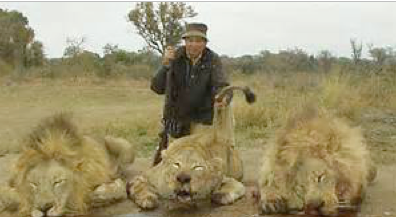News
Latest Lion Aid News
The IUCN comes out (once again) in support of trophy hunting.
Friday 15th April 2016
|
Hunting conserves wildlife? A few days from now, the European Parliament is voting to consider allowing further imports of trophy hunted animals. The vote to ban such imports will likely not attain a majority this time around, but nevertheless the IUCN published a document to inform Members of European Parliament about the positive benefits of trophy hunting for wildlife conservation. And that 0.8% comes at a consumptive cost of thousands of animals “harvested” by trophy hunters annually. Is that the best use of wildlife resources in terms of sustainable returns? I would suggest not. |
Posted by Chris Macsween at 17:44
Mario Rossi
18th April 2016 at 20:42
You have completely missed the point on your remark on page 15 of the IUCN document.
Read the caption of the table. Table 1 Revenue from trophy hunting and photographic tourism accrued to the Wildlife Division in Tanzania from lands under its jurisdiction.
These are the figures for the areas under the jurisdiction of the Wildlife Division and not for the entire country! Read correctly and you will see that you are totally wrong in your assumptions.
best regards
Mario Rossi
Chris Macsween
19th April 2016 at 11:16
The IUCN document attempts to show that trophy hunting income is much more important than tourism to Tanzania. This is a complete falsehood and goes to show that the document is heavily biased in terms of reporting any benefit to trophy hunting in the countries they mention. But thanks for your comments. Always good to get feedback!
Add a new comment
Existing user
New user sign up




